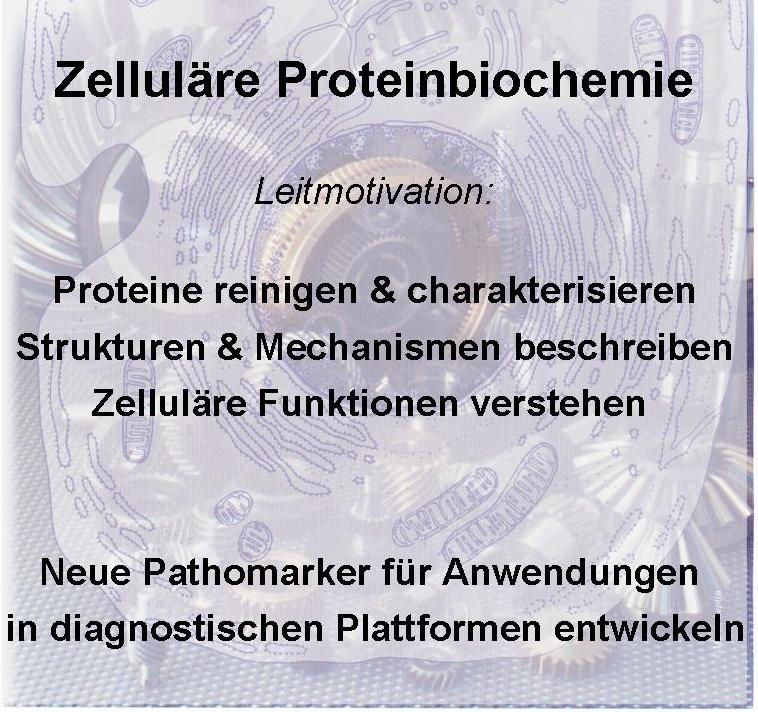Research
Focus
Ubiquitin Proteasome System: We identified the Proteasome Activator PA28y as an important anti-apoptotic regulator of cancer cell lines. Furthermore we developed mono- and multi-parametric assays to detect the antigen and corresponding antibodies in autoimmune diseases. In collaboration with the Molecular Biology Unit we developed new approaches for the mapping of the proteins epitopes recognised by research antibodies.
Regulation of Apoptosis: We confirmed the anti-apoptotic role of PA28g in two different cellular systems using stable transfectants and gene overexpression as well as gene silencing. We investigated the different molecular levels in apoptotic signal transduction and found that PA28y has the intriguing ability to override pro-apoptotic scenarios dominated by p53. Our next goal is to confirm our model how this interesting protein is capable to increase the survival of tumour cells. Our work may contribute to establish new biomarkers for the application in personalized medicine.
Citrullination: We are interested in functional alterations of proteins undergoing arginine deimination. Protein citrullination is related to epigenetic alterations and regulation of transcription in tumour cells. Autoantibodies against citrullinated proteins have been found in several diseases such as cancer, autoimmune diseases and neuro- degeneration. We are developing technologies to citrullinate proteins in cells or in vitro. We try to understand how citrullination is regulated under conditions of programmed cell death.
As interfacial enzymes, hydrolases such as citrullinating peptidyl-arginine deiminases or proteasomes, may be associated to biomembranes in vivo or may be immobilized to other surfaces for biotechnological purposes. Our aim is to study and manipulate interfacial enzymatic activity and specificity to contribute to the production of enzymes and antigens with improved diagnostic values.
Goals:
- Define the mechanistic role of components of the ubiquitin proteasome system in apoptosis
- Understand how posttranslational modifications guide protein degradation in apoptotic signaling
- Apply knowledge in protein biochemistry and cell biology to improve diagnostics and therapy of disease (cooperation with clinical and industrial partners - transfer)

